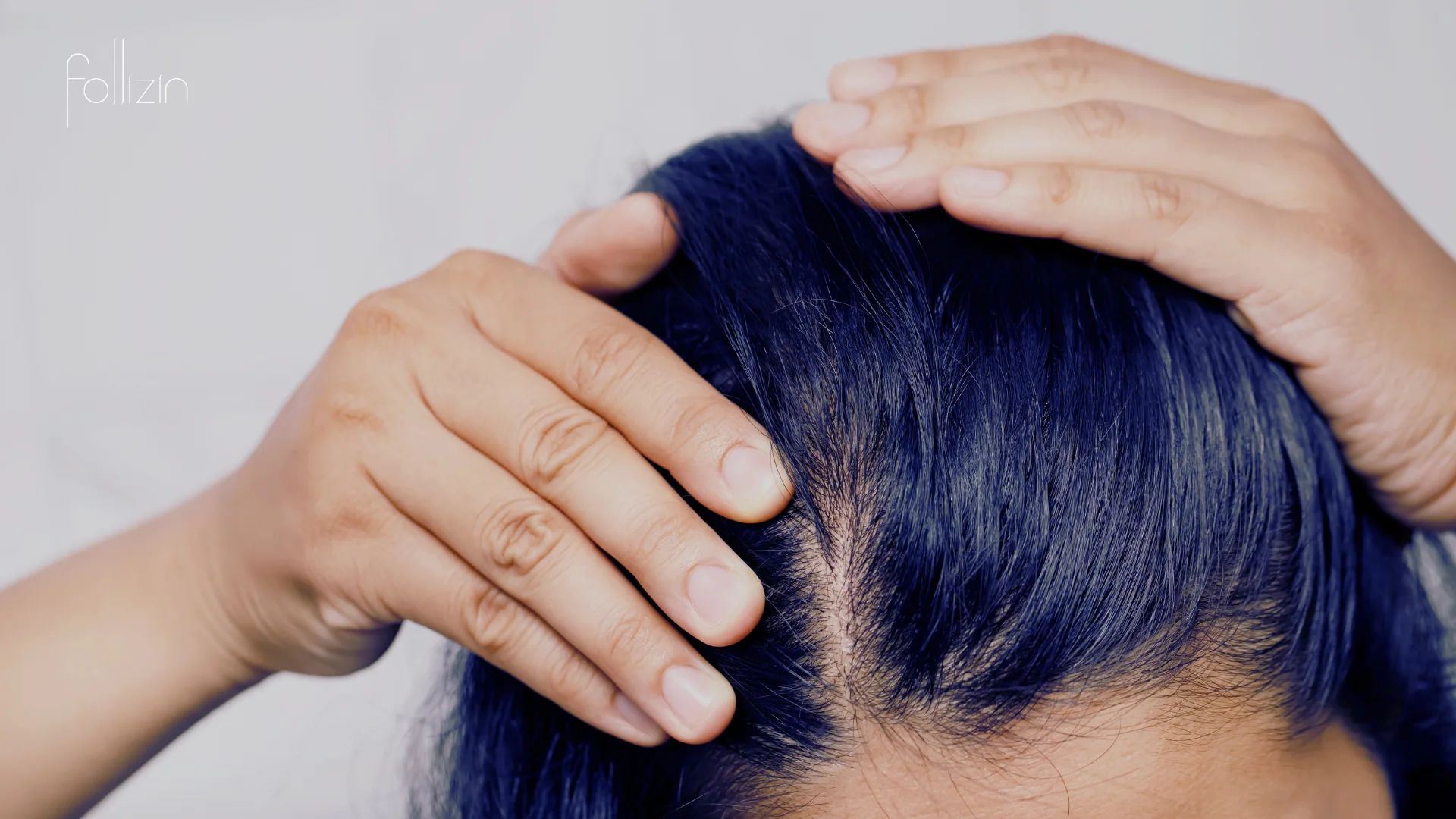Itchy, red, or flaky scalp can be a sign of “scalp inflammation,” a common issue that causes discomfort for many people. However, not all scalp inflammations are the same—each type has different causes and requires specific treatments. Understanding the type of scalp inflammation you’re dealing with can help you address it effectively and recover faster. Follizin dives deep into the types of scalp inflammation and provides the right treatment solutions.
Types of Scalp Inflammation and Their Treatments
Scalp inflammation comes in various forms, each with distinct causes and remedies. Here’s what you need to know:
1. Seborrheic Dermatitis (Dandruff Inflammation)
This is the most common type, characterized by red, itchy patches with yellow or white flakes resembling dandruff. It typically occurs in areas rich in sebaceous glands, such as the scalp, face, and chest. Causes include the Malassezia fungus, stress, and hormonal changes.
Treatment: Use medicated shampoos containing ketoconazole, selenium sulfide, zinc pyrithione, or salicylic acid. Follow usage instructions from your doctor or pharmacist. In severe cases, topical steroids may be prescribed to reduce inflammation.
2. Contact Dermatitis (Irritant or Allergic Reaction)
This occurs due to an allergic reaction or irritation from chemicals in products like shampoos, conditioners, hair dyes, or fragrances. Symptoms include itching, redness, small blisters, or flaking.
Treatment: Stop using the suspected product immediately. Apply topical steroid creams to reduce inflammation and take antihistamines for relief. Consult a doctor if symptoms persist or worsen.
3. Psoriasis
A chronic skin condition causing thick, red patches covered with silvery scales. It often affects the scalp, elbows, and knees, leading to intense itching and flakiness.
Treatment: Treating psoriasis can be complex and may involve medicated creams, oral medications, or ultraviolet light therapy. Seek advice from a dermatologist for a tailored treatment plan.
4. Folliculitis (Infected Hair Follicles)
Caused by bacterial infections in hair follicles, this condition presents as small, pus-filled bumps that itch and cause pain on the scalp.
Treatment: Use antibacterial shampoos containing benzoyl peroxide. In more severe cases, oral antibiotics may be prescribed.
5. Lichen Planus
A chronic inflammatory skin condition characterized by purplish-red bumps, itching, and sometimes mouth sores. When it affects the scalp, it can lead to patchy hair loss.
Treatment: Treatment depends on severity and may include topical or oral medications, as well as light therapy. Consult a dermatologist for proper management.
What to Do If You Have Scalp Inflammation
Here are some tips to manage scalp inflammation effectively:
- Avoid Scratching: Scratching can worsen the condition and lead to infections.
- Maintain Scalp Hygiene: Wash your hair with a gentle shampoo and avoid overwashing.
- Avoid Harsh Products: Stay away from shampoos or products with sulfates, fragrances, or artificial dyes.
- Consult a Dermatologist: If symptoms persist or worsen, seek professional diagnosis and treatment.
Don’t let scalp inflammation disrupt your life. By identifying the type and treating it correctly, you can achieve a healthier scalp and beautiful hair.

